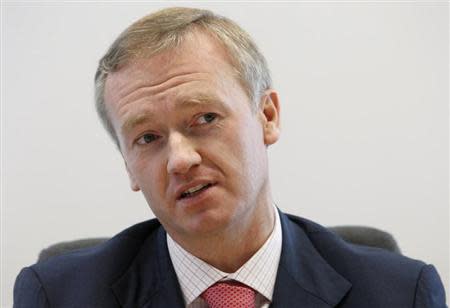Russia expects Belarus to hand over Uralkali CEO soon

MOSCOW (Reuters) - Russia expects Belarus soon to hand over the head of Russian potash producer Uralkali, arrested last month in the Belarussian capital, a Kremlin official said on Friday. The remarks by foreign policy adviser Yuri Ushakov suggested the two countries were closer to resolving a dispute that flared after Uralkali quit a sales partnership that had been one of the dominant forces on the global potash market. Alexander Lukashenko, who will meet Russian President Vladimir Putin on Monday, said on Thursday he was ready to repatriate Uralkali CEO Vladislav Baumgertner but wants a change of ownership in Uralkali that restores strong commercial links with Belarus. "We expect that this Russian citizen will be handed over to Russia," Ushakov told reporters. "Yesterday's comments by the Belarussian president give us reason to hope that this question will be resolved in the nearest future." Lukashenko took a conciliatory tack after weeks of tension following the collapse in July of the lucrative sales cartel involving Uralkali, the world's top potash producer, and state-owned Belaruskali. He said he did not want the dispute to become a major stumbling block in political ties with Russia. Exports of potash, a major fertilizer ingredient, account for 12 percent of Belarussia's state revenue. The pull-out by Uralkali threatened to push potash prices down 25 percent - a big blow to the former Soviet republic's fragile economy. Belarus has accused the 41-year-old Baumgertner of abuse of power and has twice turned down appeals for him to be released provisionally pending investigation. With the affair placing fresh strain on the close, but often tense, relations between the two ex-Soviet allies, speculation has mounted that billionaire Suleiman Kerimov, Uralkali's main shareholder, may sell his $3.7 billion stake to an owner looked on more favourably by the Kremlin. (Reporting by Gabriela Baczynska; Writing by Timothy Heritage; Editing by Douglas Busvine and Jane Merriman)
